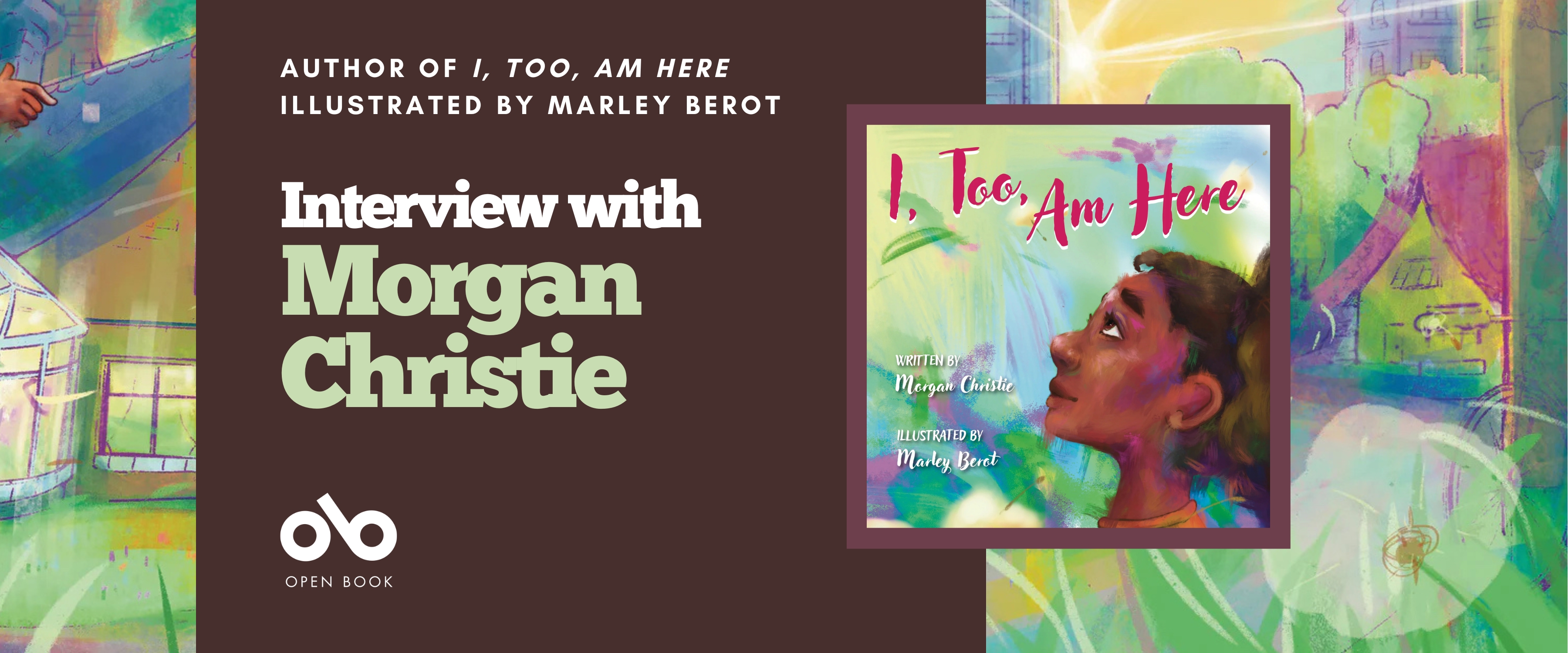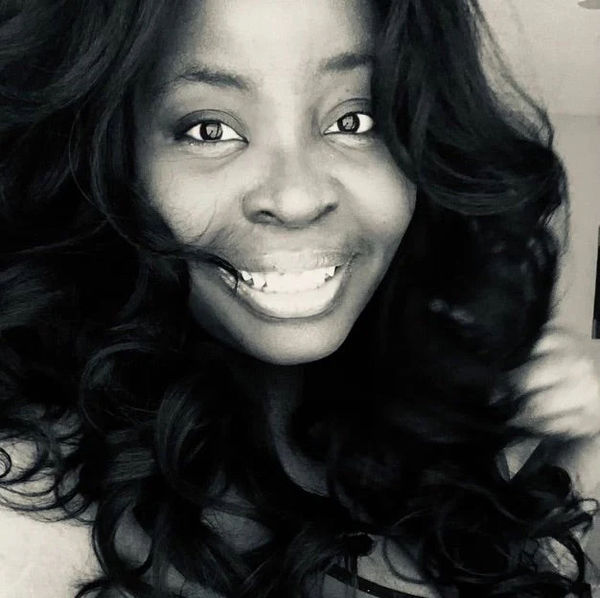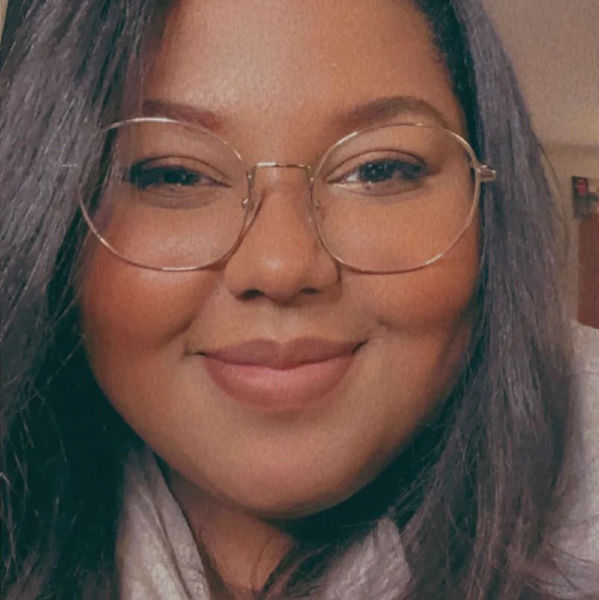A Young Girl Looks to Family Stories and a Very Powerful Poem to Find her Place in I, Too, Am Here
A true sense of belonging may be taken for granted by some, but there are many who do not find it as easily. Whether due to social and cultural issues that marginalize immigrants and people of colour, or through simply being displaced time and again, there are factors that make home all the more elusive for a great deal of people around the world.
This sense of home and belonging is at the heart of I, Too, Am Here (Second Story Press), the second picture book from prolific author Morgan Christie. In this story, a young girl finds herself living on a particular street with families from all over the world, and in a country where she often feels like she does not quite fit. Her family share stories that illustrate their struggle and journey to this place, and she finds hope in the powerful words of a famous Langston Hughes poem.
With breathtaking, colourful illustrations by Marley Berot, this is a story that will speak directly to many young readers who have felt like they don't belong, and will help affirm their beauty, presence, and value in the word.
We're thrilled to share this Kid's Club BFYP interview with the author right here on Open Book!
Open Book:
Tell us about your new book and how it came to be.
Morgan Christie:
I, Too, Am Here is a story about a young girl and her family. They’ve traveled to different places and many were born in different places as well. We follow our main character as she listens to stories from her family about times and ways they were made to feel unwelcome in the places they then considered home. Finally, we listen to her story of feeling shut out and isolated at school. The girl and her mother share in a discussion about a poem named “I, Too,” and she is reminded of the fact that she, too, is here—and that that’s a beautiful thing.
The story was inspired by the poem “I, Too” by Langston Hughes. In illustrating the feelings from his poem in this story, my hope was to open the narrative and themes to a wide range of experiences from people all over the world that also understand what Hughes is discussing. There are too many people who are made to feel like they don’t belong, this story affirms our beauty, presence, and value.
OB:
Is there a message you hope kids might take away from reading your book?
Your CanLit News
Subscribe to Open Book’s newsletter to get local book events, literary content, writing tips, and more in your inbox
MC:
I hope kids remember how important and powerful words and actions are. So much of what we do affects the world around us, and holding awareness of that fact is both kind and responsible. Regardless of where we come from or the colour of our skin, we are people sharing in communities, schools, and plenty of other spaces. Being sure that the way we treat people reflects an openness to understand and respect each other should always remain a priority.
OB:
Do you feel like there are any misconceptions about writing for young people? What do you wish people knew about what you do?
MC:
Definitely. The biggest misconception I run into is the idea that young people cannot handle subject matter that’s often described as “difficult.” I’ve heard these topics range from themes of loss, prejudice, illness, racism, divorce, and many others. I’ve always struggled with terms like “difficult topics.” While I understand the intent, there are better ways to flag them. “Difficult topics” are just as common as any other theme or idea for young readers and staples in their experiences. Outside of calling them by their names, i.e., stories about loss or prejudice, addressing stories as “social issue/awareness” narratives more specifically acknowledges the range of experiences young readers live day to day.
Through our stories, we offer young readers a platform to experience new understandings of the world around them, or to identify shared lived experiences. Assuming that young readers cannot handle stories, discussions, and experiences that may differ from their own is a huge misconception. I believe we support readers through our writing and with diverse perspectives.
OB:
What's your favourite part of the life cycle of a book? The inspiration, writing the first draft, revision, the editorial relationship, promotion and discussing the book, or something else altogether? What's the toughest part?
MC:
The inspiration. Often referred to as the “big idea” in my writing workshops and classes, the moment a topic or theme sparks with the story idea has always been my favourite. It’s so palatable, a tangible sort of certainty that you’ve found the right conduit for all the excitement and electricity running through the idea. That moment of realized inspiration is the beginning of what will be, and it still gives me goosebumps.
OB:
What are you working on now?
MC:
I just completed a short story collection that, in some ways, deals with a lot of similar themes from I, Too, Am Here. A sort of multigenerational collection that takes place in Toronto and is centered around a Caribbean community in the west end. It’s almost as close to home, literally and figuratively, as this story!
____________________________________________________
Morgan Christie is the author of four poetry chapbooks, a short story collection, and a collection of essays. She has won the Arc Poetry Poem of the Year Contest, the Prairie Fire Fiction Prize, the Digging Press Chapbook Series Prize, and the Howling Bird Press Nonfiction Book Award. I, Too, Am Here is her second picture book and she continues to work towards affecting change through reading and writing. Morgan is based out of Toronto.
Marley Berot is an illustrator with over ten years of combined personal and professional experience. Her portfolio includes cover art for Neuron, graphic design work for the Toronto International Film Festival, logo design, and book illustration. She runs her own online store called MarleysApothecary.com. Marley is very passionate about her work as an artist, and this can be seen in every piece she creates. She lives in the Toronto area.







